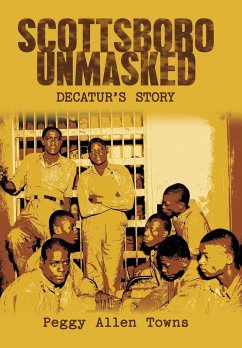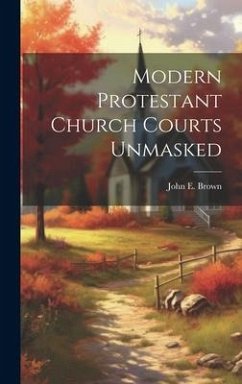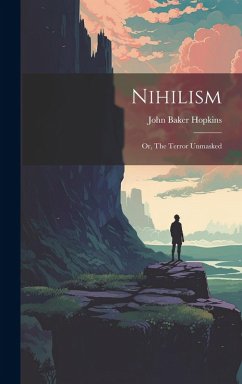
Scottsboro Unmasked
Decatur'S Story
Versandkostenfrei!
Versandfertig in über 4 Wochen
25,99 €
inkl. MwSt.
Weitere Ausgaben:

PAYBACK Punkte
13 °P sammeln!
What is the picture of inequality? Is it race, gender, ethnicity, age, or place? Time and time again, our American history gives us the answer to that age-old question. In 1933, attorney Samuel Leibowitz argued that it was disparity in the jury pool and the innocence of nine. Sadly, the horrible malignancy of racism continues to exist and is the primary root of many prejudices and inequalities in our country today. This powerful historical narrative paints an amazing picture of the color line and the incredible bravery of people who took a stand for justice. The author resurrects the voices an...
What is the picture of inequality? Is it race, gender, ethnicity, age, or place? Time and time again, our American history gives us the answer to that age-old question. In 1933, attorney Samuel Leibowitz argued that it was disparity in the jury pool and the innocence of nine. Sadly, the horrible malignancy of racism continues to exist and is the primary root of many prejudices and inequalities in our country today. This powerful historical narrative paints an amazing picture of the color line and the incredible bravery of people who took a stand for justice. The author resurrects the voices and the infamous case of the Scottsboro Nine. Their unmasked stories unfold against the backdrop of an economically depressed town, energized with an inferno of bigotry and violence. This groundbreaking research presents the courage of fearless men who rattled Americas conscience by challenging decades of discrimination and injustices within Alabamas legal system. On the other hand, the book reveals the sentiment of those who embraced the Old Souths ideology of inequality and exclusiveness, which put at risk the lives of nine innocent victims, young men who changed Americas judicial system. Fiat justitia rual coelomthis is Latin for Let justice be done though the heavens may fall. These are words that my grandfather, Judge James E. Horton, learned at his mothers knee. It seems he followed those wise words as he set aside the verdict and death sentence and ordered a new trial for Haywood Patterson. Though his decision cost him the next election, there were never any regrets. John Temple Graves, a Birmingham columnist, wrote of him, He does the right thing as he sees it, with no particular sense of the scene about him, but with an enormous sense of right-doing, ancestors gone and example-bound descendants to come. His social conscience is vertical rather than horizontal. We are the beneficiaries of his vertical conscience and I hope we will all strive to live by his example (Kathy Horton Garrett, Judge Hortons granddaughter).












![Valandigham's [!] Record Reviewed. A Political Traitor Unmasked Cover Valandigham's [!] Record Reviewed. A Political Traitor Unmasked](https://bilder.buecher.de/produkte/65/65677/65677164n.jpg)
